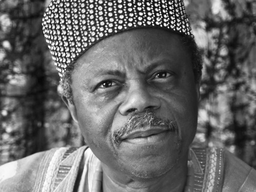The Contemporary African Immigrant Communities in the US
Location
University Center : Ballroom
Date & Time
November 8, 2017, 7:00 pm – 8:30 pm
Description
Toyin Falola, Professor of History, Jacob and Frances Sanger Mossiker Chair in the Humanities, and University Distinguished Teaching Professor, University of Texas, Austin
Many citizens of continental Africa now live in the United States. In this talk, celebrated scholar ToyinFalola will discuss how African immigrants create a new, contemporary form of citizenship between the United States and Africa. The lecture will highlight differences in trends, particularly between migration of enforced slavery and voluntary migration. It will point to patterns of cultural transformation that are emerging and the ambiguous future of transnational engagements between the United States and Africa.
Bio: Dr. ToyinFalola is the author of 23 books including The Humanities in Africa: Knowledge Production, Universities, and the Transformation of Society (2016); The African Diaspora: Slavery, Modernity, and Globalization (2013); and Colonialism and Violence in Nigeria (2009). He has co-authored 25 books including Women’s Roles in Sub-Saharan Africa (2012), and has edited 24 books and co-edited 88 books. Professor Falola has authored or co-authored numerous journal articles, book chapters, and newspaper and magazine articles, and been the subject of several radio and television interviews. He is the recipient of seven honorary degrees, several dozens of lifetime awards, and many honors, fellowships, teaching, and book awards.
Sponsored by Office of the Dean of the College of Arts, Humanities, and Social Sciences; the Africana Studies Department; the Social Sciences Forum; the Dresher Center for the Humanities; the Divison of Professional Studies; the American Studies Department; the History Department; the Modern Languages, Linguistics, and Intercultural Communications Department; the Shriver Center; and the Office of Undergraduate Admissions and Orientation.
Many citizens of continental Africa now live in the United States. In this talk, celebrated scholar ToyinFalola will discuss how African immigrants create a new, contemporary form of citizenship between the United States and Africa. The lecture will highlight differences in trends, particularly between migration of enforced slavery and voluntary migration. It will point to patterns of cultural transformation that are emerging and the ambiguous future of transnational engagements between the United States and Africa.
Bio: Dr. ToyinFalola is the author of 23 books including The Humanities in Africa: Knowledge Production, Universities, and the Transformation of Society (2016); The African Diaspora: Slavery, Modernity, and Globalization (2013); and Colonialism and Violence in Nigeria (2009). He has co-authored 25 books including Women’s Roles in Sub-Saharan Africa (2012), and has edited 24 books and co-edited 88 books. Professor Falola has authored or co-authored numerous journal articles, book chapters, and newspaper and magazine articles, and been the subject of several radio and television interviews. He is the recipient of seven honorary degrees, several dozens of lifetime awards, and many honors, fellowships, teaching, and book awards.
Sponsored by Office of the Dean of the College of Arts, Humanities, and Social Sciences; the Africana Studies Department; the Social Sciences Forum; the Dresher Center for the Humanities; the Divison of Professional Studies; the American Studies Department; the History Department; the Modern Languages, Linguistics, and Intercultural Communications Department; the Shriver Center; and the Office of Undergraduate Admissions and Orientation.
